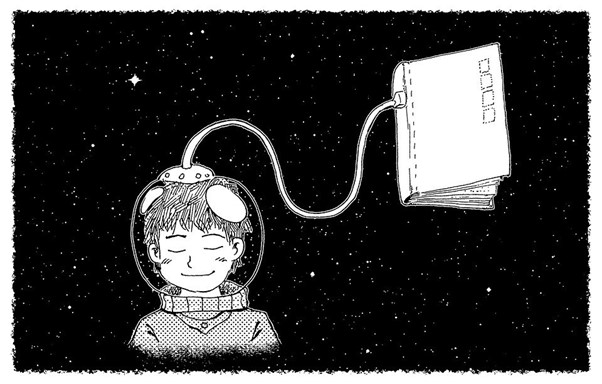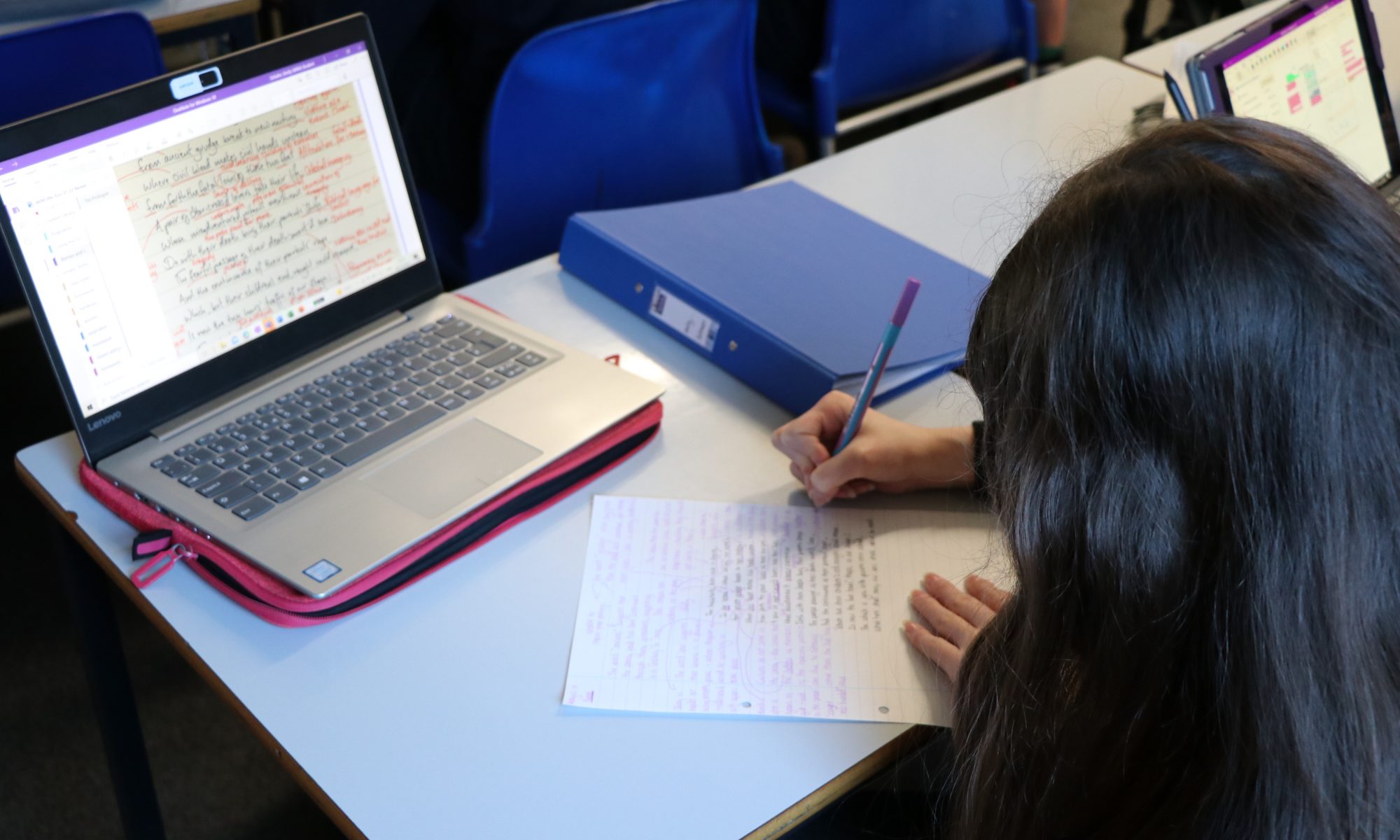Miss Lucinda Gilchrist contests current political orthodoxies that devalue the study of Arts and Humanities subjects, and asserts the profound importance of English at A Level and beyond

Image Credit: https://pixabay.com/illustrations/fairy-tale-fantasy-dream-night-1077863/
The national picture
The study of English Literature and Language at A Level and at university in the UK is in decline – there has been a 23% drop in pupils taking A Level English Literature since 2017[i]. While numbers of A Level English Literature students at Wimbledon High remains robust, nonetheless there are powerful currents shaping the national context, which need to be challenged.
The political trend of steering of students towards STEM subjects has had a significant impact on the perception and take-up of English Literature, while reductions in government funding to the Arts is scuppering the effective running of departments and courses, devaluing the Arts conceptually and monetarily. This is entirely at odds with our STEAM+ agenda at WHS, which celebrates the power of interdisciplinary learning and the equal value of all subjects in our curriculum.
However, the National Association of Teachers of English (NATE) argues that the decline can also partially be attributed to neglect of the ‘big picture’ of English teaching, due to a model of literary texts as ‘cultural capital’[ii], which reductively posits literary study as developing declarative knowledge of canonical texts.
But where are students going if they aren’t studying English? Geography entries at A Level in the UK have risen by 16%, something that the Geographical Association has attributed in part to increased concerns in young people about the environment[iii]. Subjects like the Sciences and Geography are perceived to equip students with the skills and qualities they need to make an active and positive change in the world, while English and other arts subjects have been unflatteringly described by the former Secretary of State for Education, Gavin Williamson, as ‘dead-end courses that leave young people with nothing but debt’[iv].
What can we do to change this?
NATE recommends thinking about English as than ‘a means of pleasurable reflection on and participation in life’, through we can examine ourselves and the world around us. Diversifying the curriculum is one crucial example of how English can engage in and contribute to work of great cultural and social value. The English department are working hard to identify ways to decolonise the curriculum, with a new post-colonial literature unit at A Level, a new ‘Singing the Self’ Year 9 poetry unit, and the addition of texts by a diverse range of writers into the Year 8 Fiction Fest. This is not a fast process, and it’s important to avoid superficial measures, instead interrogating our own assumptions and contesting dominant narratives.
Furthermore, as Angus Fletcher argues in Wonderworks, literature is responsible for some of the greatest philosophical and psychological inventions in the history of mankind: ‘[it is] a narrative-emotional technology that helped our ancestors cope with the psychological challenges posed by human biology. It was an invention for overcoming the doubt and pain of just being us.’[v] Fletcher gives a compelling account of how writers have maximised neurological and psychological processes, using the language and structure of texts as ways into the human mind, enabling humanity to improve itself in the process.
The study of literature, therefore, is just as important a tool to make the world a better place as the Sciences and Geography. For example, as Ms Lindon has suggested, eco-poetry ‘can generate the imaginative power to help us dwell better, if we allow it to act upon us’[vi]. Fletcher comments on the power of poetic diction to help us look at the world anew: the inverted word order of ‘the flower blue’ rather than ‘the blue flower’ defamiliarizes us with something we might ignore as ‘boringly ordinary, and [inspires] us to see fresh details, fresh points of emphasis, fresh opportunities for discovery’.
What does this look like in English at WHS?
The texts explored in English at WHS offer many opportunities to examine or defamiliarize the world and summon up ‘imaginative power to help us dwell better’. For example, in studying Shakespeare, we deconstruct 16th century attitudes to issues such as gender, sexuality, wealth, race and colonialism, helping us contextualise the discourses and complexities of debates around the same topics today. At GCSE, you may read Kazuo Ishiguro’s novel Never Let Me Go and explore the pressures of being ‘normal’ through the perspective of Kathy, a clone created for organ donations, desperately trying meet social expectations for human behaviour when that same society views her as less than human. As Fletcher argues, literary forms themselves are ‘inventions’ which unlock our empathy, defamiliarize and refamiliarize, and help us understand and interact with the world and each other better.
Thus, English lessons are likely to be in equal part inspiring and challenging, especially where we need to acknowledge our own blind spots and where we have been influenced by powerful social and cultural narratives. We need to have a flexible ‘growth’ mindset about tackling complex issues and encountering literature’s transformative power over our minds. The English Department’s new mission statement articulates our aims in tackling the ‘big picture’ of learning in English head on.
The study of language and literature is the study of the human condition: how we behave, think, feel, how we respond to political and social changes. As such, in English we can expect to come across issues and themes which are complex, challenging, troubling and exciting, and which speak to society and culture today as much as they did in a text’s original context. In exploring these texts we have an opportunity to interrogate the issues which affect us in society at large, and in English lessons we agree to sit in the discomfort, pull apart these topics, searching for ways of understanding and ways to engage with the world, and developing the language to speak about what affects us. We know that these debates resist easy answers and that everyone gets things wrong sometimes, so English lessons are a mutually respectful open space to explore, develop new ways of looking at our society and culture, and finally to create and enjoy those texts which inspire us.
English
may often deal in hypotheticals, imaginary worlds, or historical contexts far
removed from our own, making it seem detached from the immediate problems of our
world. But in fact, this very quality is why the study of literature allows us
to develop frameworks and language to engage more deeply in life, and to effect
meaningful change in this world and in ourselves.
[i] https://inews.co.uk/news/education/gcses-a-levels-2021-english-literature-geography-1023545
[ii] https://www.nate.org.uk/wp-content/uploads/2020/06/NATE-Post-16-position-paper.pdf
[iii] https://inews.co.uk/news/education/gcses-a-levels-2021-english-literature-geography-1023545
[iv] https://www.conservativehome.com/platform/2021/05/gavin-williamson-skills-jobs-and-freedom-my-priorities-for-this-weeks-queens-speech-and-the-year-ahead.html
[v] Fletcher, A. (2021) Wonderworks: The 25 Most Powerful Inventions in the History of Literature, New York: Simon and Schuster.
[vi] http://whs-blogs.co.uk/eco-blog/ecopoetry-can-literature-really-change-world/

